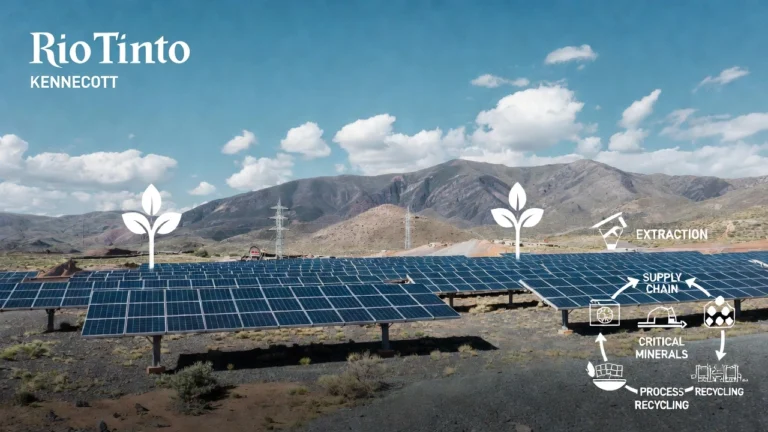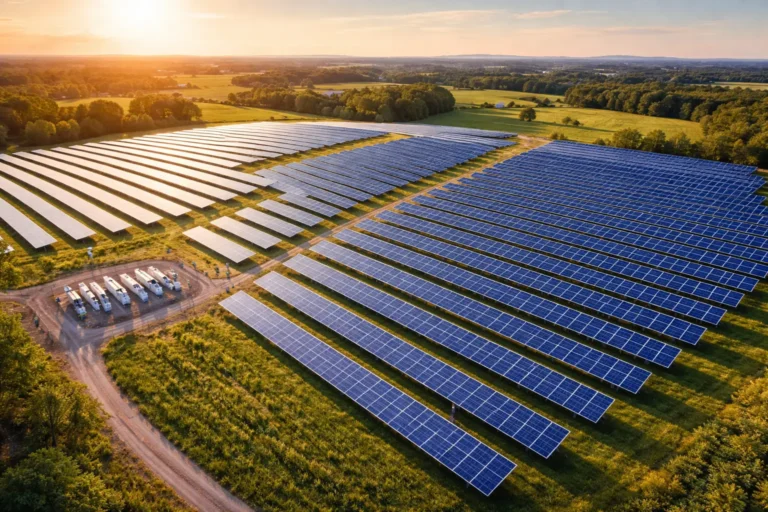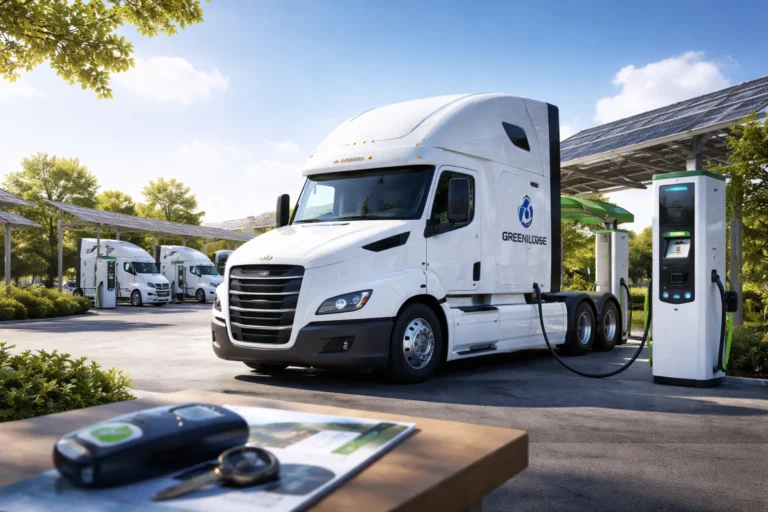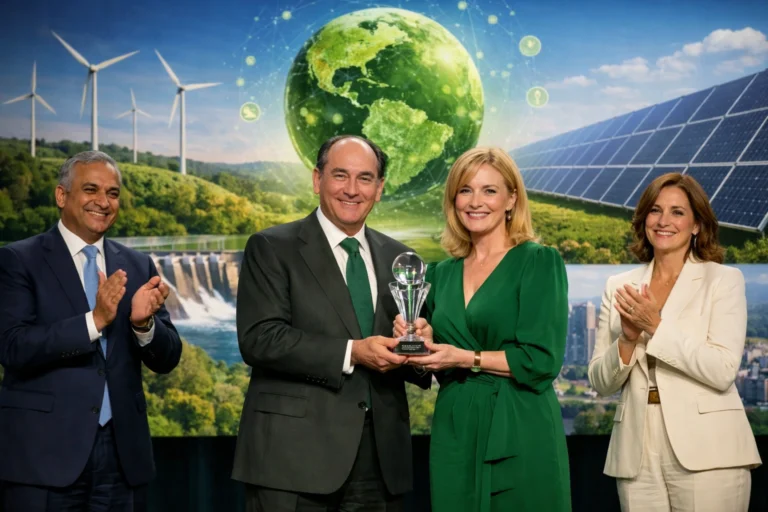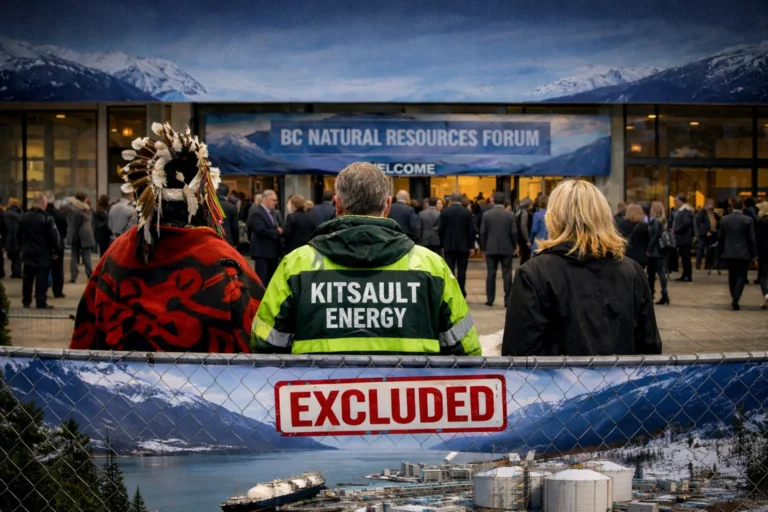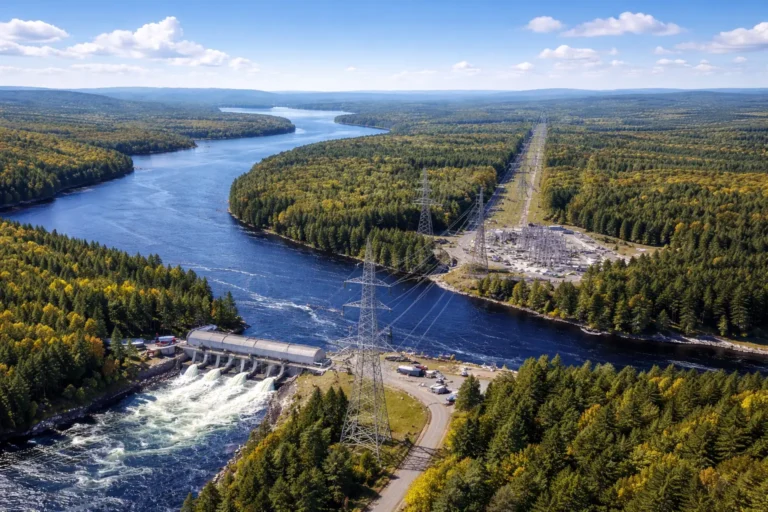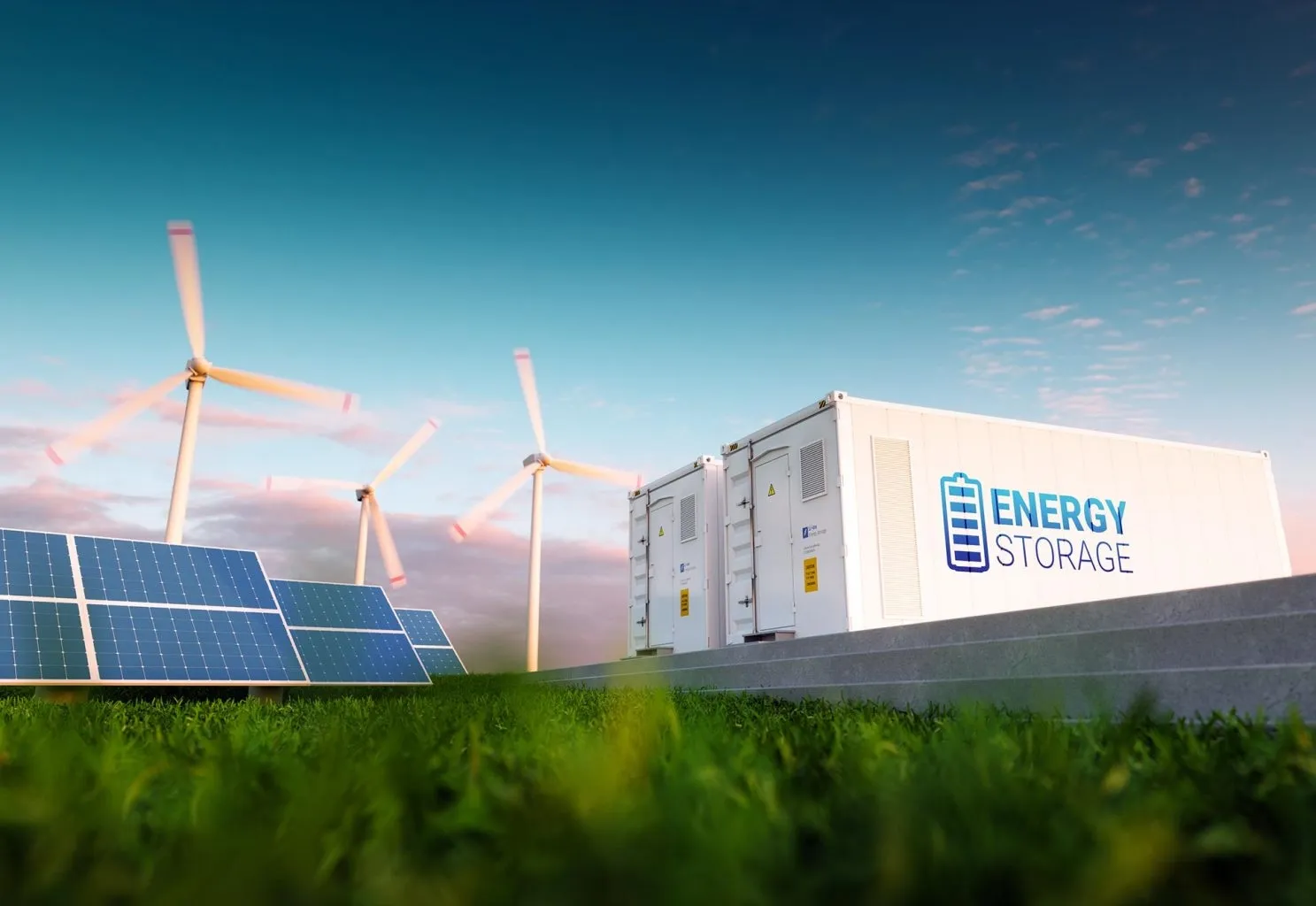
Strata Clean Energy Breaks Ground on 600 MWh Justice Energy Storage Project in Maricopa County, Arizona
Strata Clean Energy, a leading U.S. developer and operator of large-scale renewable and storage projects, has officially commenced construction on the Justice Energy Storage facility in Maricopa County, Arizona. This major development marks a significant step forward in advancing grid reliability and clean energy integration for the region. A ceremonial groundbreaking was held to commemorate the launch of the project, bringing together key figures from Strata, Arizona Public Service (APS), and numerous local and state stakeholders.
The Justice Energy Storage facility is a large-scale battery energy storage system (BESS) that will have a capacity of 150 megawatts (MW) with a total energy output of 600 megawatt-hours (MWh). Once completed, the site will be capable of storing and dispatching electricity equivalent to powering approximately 24,000 homes for four continuous hours. The project is scheduled for completion and full operational status by April 2026.
A Milestone in Arizona’s Energy Transition
This project is a cornerstone in Arizona’s ongoing transition toward a more sustainable and resilient electricity system. Arizona faces increasing energy demands driven by population growth, economic development, and extreme weather events—particularly during its scorching summer months when energy usage surges due to widespread air conditioning. The Justice Energy Storage project is designed to alleviate pressure on the grid by storing renewable energy—especially solar power—during the day and releasing it during the evening when demand peaks and solar generation drops off.
By enhancing the ability of the grid to shift renewable energy from times of surplus to times of need, the Justice project will play a vital role in minimizing dependence on fossil fuel peaker plants, which are traditionally used to meet high demand but are carbon-intensive. This aligns with Arizona’s long-term environmental and economic goals of reducing greenhouse gas emissions, ensuring grid reliability, and maintaining affordable energy rates for residents and businesses.
“This project underscores our long-term commitment to enabling a resilient, decarbonized energy future,” said Tiago Sabino Dias, Chief Commercial Officer at Strata Clean Energy. “Justice will help Arizona move closer to its clean energy goals while supporting the economic vitality of the region.”
Strategic Partnership with Arizona Public Service
The Justice Energy Storage project is being developed in collaboration with APS, the largest electric utility in Arizona. APS serves over 1.3 million customers across the state and has been actively expanding its clean energy resources, including renewable generation and energy storage. APS awarded the Justice project as part of its 2023 All-Source Request for Proposals (RFP), which sought a wide range of energy solutions to support its long-term integrated resource plan.
Under a 20-year tolling agreement, Strata will be responsible for developing, owning, and operating the storage system, while APS will utilize the facility to manage energy delivery to its customers. This type of agreement allows for a strategic division of responsibilities—leveraging Strata’s technical and operational expertise in storage development and allowing APS to enhance its service reliability and meet regulatory requirements without taking on direct ownership of the asset.
“At APS, we plan years in advance and maintain a balanced and diverse energy portfolio to serve our customers,” said Brian Cole, APS Vice President of Resource Management. “With the addition of the Justice Energy Storage project, we’ll continue to deliver reliable and affordable energy as we power Arizona’s future growth.”
This project adds significant energy storage capacity to APS’s grid portfolio and builds upon its broader efforts to deploy more clean energy while ensuring grid resilience in the face of rising temperatures and climate variability.
Technological Importance and Broader Implications
Battery energy storage systems like Justice are becoming indispensable components of modern power grids. They are particularly important for integrating intermittent renewable energy sources, such as solar and wind, which cannot produce electricity continuously or on demand. In states like Arizona, where solar power is abundant, energy storage systems provide a mechanism for “time-shifting” energy—capturing it when the sun is shining and releasing it when the sun sets but demand remains high.
The 600 MWh capacity of the Justice facility places it among the larger storage projects under development in the U.S. and represents a growing trend of utility-scale storage investments across the country. These systems contribute to grid flexibility, provide ancillary services like frequency regulation and voltage support, and enhance the grid’s ability to respond quickly to changing load conditions or unexpected supply interruptions.
Justice will also contribute to reducing curtailment—a situation where solar or wind energy is produced but not used due to lack of demand or transmission limitations. With storage available, excess renewable generation can be preserved for later use instead of being wasted.
Moreover, projects like Justice serve as economic catalysts for the local community. Construction and ongoing operation will create jobs and stimulate local service industries. While the long-term staffing needs of such facilities are relatively modest, the planning, development, and construction phases generate significant short-term employment and local investment.
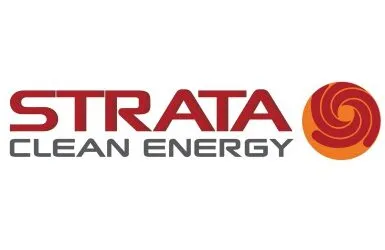
Strata’s Growing Storage Portfolio
Strata Clean Energy has rapidly emerged as one of the key players in the U.S. grid-scale energy storage market. With a development pipeline that spans multiple states and regions, the company is known for its vertically integrated approach—handling everything from project design and engineering to construction, operation, and maintenance. The company also emphasizes environmental responsibility and community engagement in its projects.
The Justice project exemplifies Strata’s strategy of partnering with utilities to accelerate the deployment of storage infrastructure that enhances grid stability and supports renewable integration.
According to Strata representatives, the company is planning additional projects in the southwestern U.S., where high solar potential and increasing energy demand create a strong case for robust energy storage development.
Public and Policy Support
Battery storage has garnered widespread support from public agencies, utilities, regulators, and communities. The U.S. Department of Energy (DOE) and state-level energy offices have been championing the expansion of energy storage as part of broader decarbonization efforts. Programs like the Investment Tax Credit (ITC) have recently been extended to include stand-alone storage systems, further improving the economic viability of projects like Justice.
Arizona regulators have also emphasized the importance of energy diversification and resilience, particularly as the state faces increasing risk from heatwaves, drought, and wildfires—all of which can affect power generation and transmission infrastructure.
As utilities work to meet clean energy mandates and decarbonization targets, energy storage has become a critical piece of the puzzle. The Justice project is well aligned with these objectives and provides a model for how public-private collaboration can drive infrastructure transformation.





